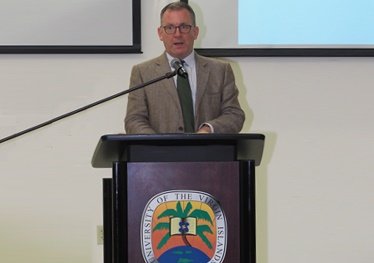Using Data to Shed the Cloak of Invisibility
Since time immemorial we have been fascinated by the power of invisibility. Plato used the “Ring of Gyges” to wrestle with the ethical and moral dilemmas it poses. Just think of H.G. Wells’ “Invisible Man”, Tolkien’s One-Ring, or Harry Potter’s Cloak of Invisibility. Does invisibility free us from moral obligations, and if we possessed this power would we become corrupted or would we enjoy secretly righting wrongs?
Outside the realms of science fiction, “invisibility” is often an every-day problem for our fellow citizens. I am thinking of those whose problems just don’t make the 24/7 news cycle: the homeless woman sleeping in a shop doorway, the ex-offender walking through the prison gate with nowhere to go, the young man who has dropped out of school with no grades. Often we simply ignore those populations, or – to borrow from Harry Potter – throw the “cloak of invisibility” around them. To be out of sight is often to be out of mind.
The ‘invisibility’ of those with developmental disabilities was thrown into sharp relief during my recent visit to the U.S. Virgin Islands. I was invited by the VI Developmental Disabilities Council to present on ‘Data Driven Policy Development’. My audience was policy makers, including those standing for elected office. If I had any doubts about the relevance of my presentation, the audience quickly rose to the occasion. “How could the needs of those with disabilities be met in the absence of data?”, they demanded. Without data, this population was “invisible”, their needs unknown to those in charge of policy. Without data, those who advocated for better services were hampered in their arguments. Without data, practitioners lacked the evidence to seek funding for new services.
The US Virgin Islands are still recovering from the two hurricanes that devasted the territory last year. As they rebuild the fabric of their communities, it was clear to me that data were not a luxury or a ‘nice-to-have”. Rather, my audience recognized the value of data in throwing light on a population that had often been marginalized prior to the hurricanes, and whose needs had since become more acute. While there is much more work to be done in defining data and setting up systems to collect and analyze data, I suggest that their demand for data was a good one and a great call to action.
It might be fun to speculate what we would do if we had our own cloak of invisibility. In the real world, however, we need data to shine a light on social problems. Or to borrow again from Harry Potter, “Lumus Maxima!”















